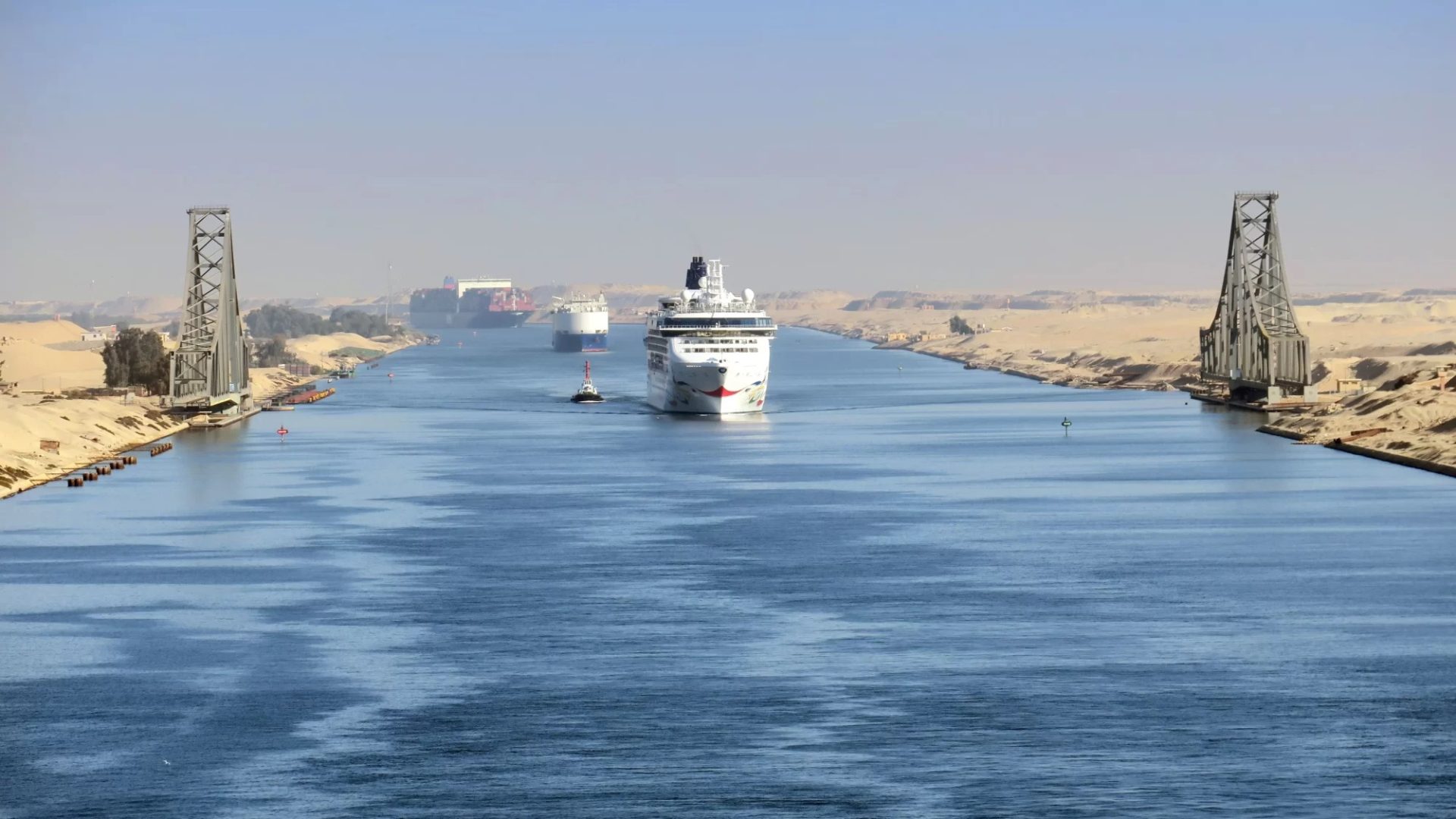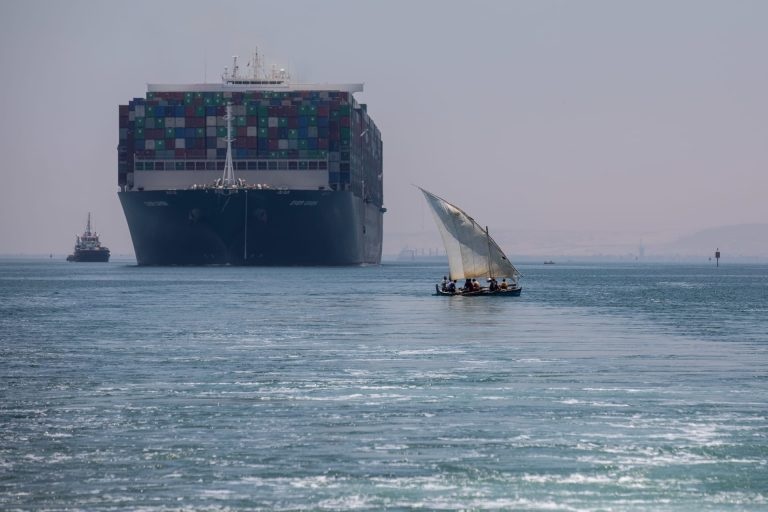Navigating Troubled Waters: The Economic Impact of Middle East Conflict on Egypt’s Suez Canal

Watan-It seems that Egypt is heading towards more economic crises, with the ongoing conflict and tension in the Middle East causing significant damage to the revenues of the Suez Canal.
In a recent report, the World Bank revealed the extent of losses that the Egyptian Suez Canal would suffer during this year if the attacks by the Houthi group in Yemen against shipping vessels in the Bab al-Mandab Strait and the Red Sea continue.
The World Bank stated in a report titled “Conflict and Debt in the Middle East and North Africa” that if the crisis persists and the traffic through the Suez Canal decreases by 40% in 2024, it would result in losses worth $3.5 billion. This amount represents 10% of the country’s international reserves.
The report pointed out that the Suez Canal is a major source of foreign currency for Egypt, with its revenues reaching $8.8 billion (25% of the country’s international reserves) in the past fiscal year. It also accounted for about a tenth of global shipping trade, including around 30% of container traffic worldwide.
According to the World Bank, Egypt is more financially vulnerable than other countries due to the impact of the Suez Canal crisis and the conflict in the Middle East, which may lead to decreased revenues and tourism earnings.
Since last year, major global shipping companies have halted their operations in the Suez Canal, redirecting ships around the Cape of Good Hope in Africa, adding between 7 to 10 days to voyages, as stated in the report.

The World Bank stated that the economic impact of the conflict in Gaza has remained relatively limited on other countries in the region, but uncertainty has increased, indicating that continued disruptions to traffic through the Suez Canal for an extended period could raise regional and global prices of essential goods.
The report confirmed that the expected weak growth of economies in the Middle East and North Africa during 2024, along with increasing debt and growing uncertainty due to the conflict, are all factors affecting economies throughout the region.
Since November last year, the Houthi group has been launching attacks against shipping vessels in the Bab al-Mandab Strait and the Red Sea, leading to a 42% decrease in traffic through the Suez Canal between late December 2023 and early February 2024, according to the World Bank.
The Houthi group asserts that it carries out these attacks in solidarity with the Palestinians in Gaza, following the war waged by the Israeli occupation army on the Gaza Strip.






